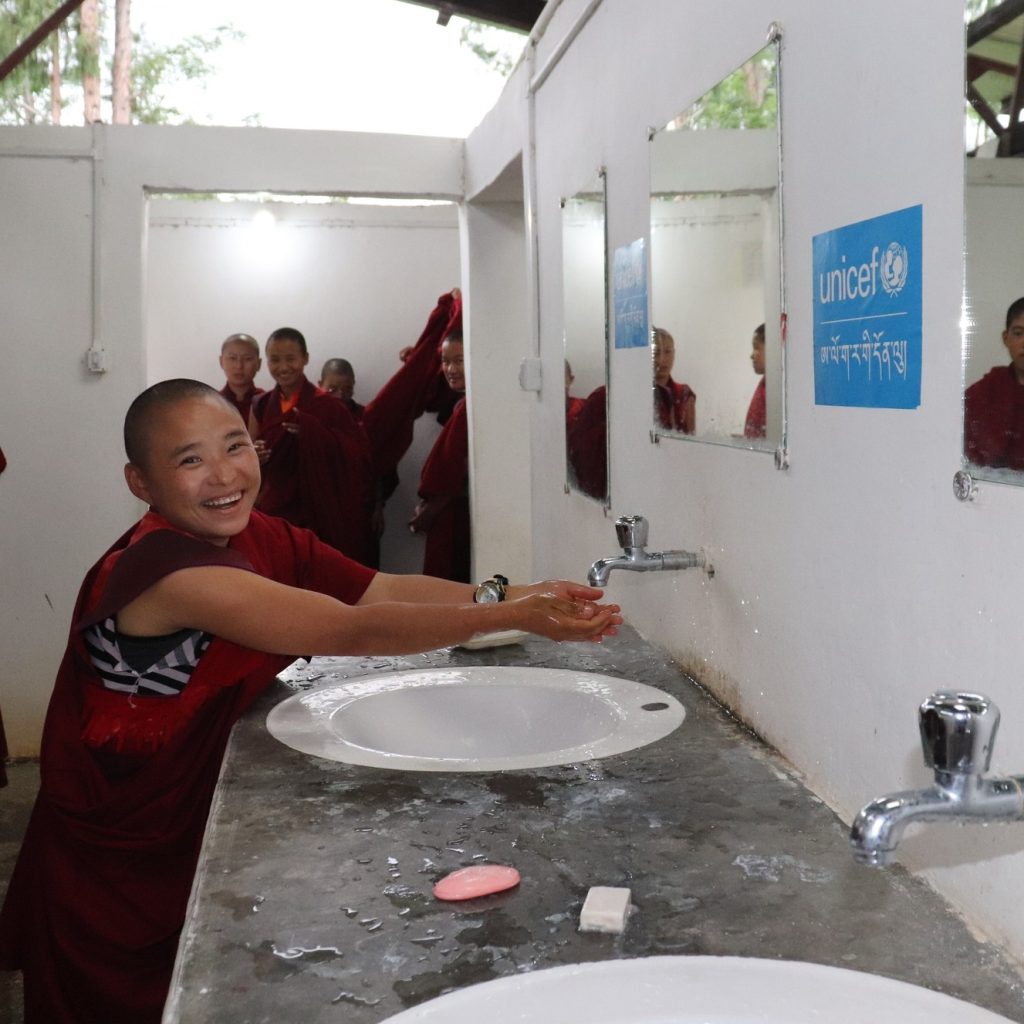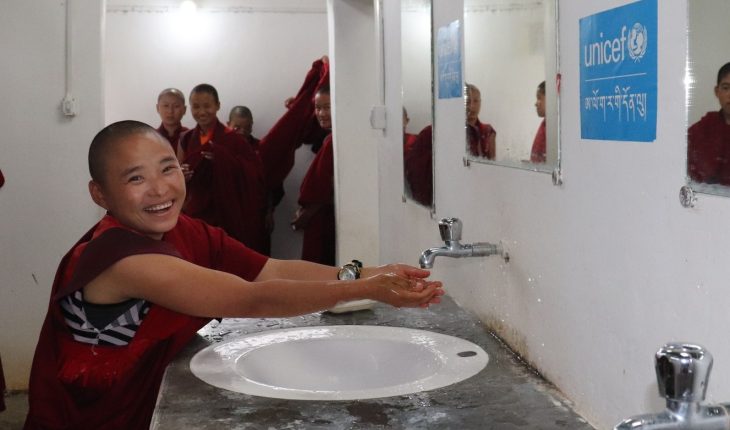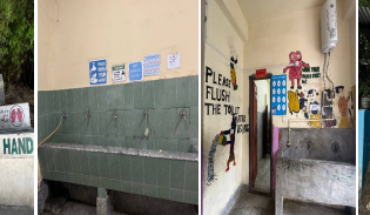
NGAWANG JAMPHEL | Thimphu
At a time when Bhutan faces challenges such as water shortages, rising non-communicable diseases (NCDs), and growing mental health concerns, monks and nuns are stepping forward as unexpected champions of public health.
Through the Religious Health Program (RHP), Bhutan’s spiritual communities are now at the forefront of advocacy and awareness, blending traditional Buddhist values with modern health practices to improve the well-being of society.
Established in 1992 as a partnership between the Central Monastic Body (Dratsang Lhentshog) and UNICEF, RHP was founded with the aim of improving quality of life by incorporating health education into spiritual teachings and daily practices.
Over the years, it has expanded its scope to include access to clean water, sanitation, and hygiene (WASH) facilities in monasteries and nunneries, while also upgrading infrastructure to promote safer and more sustainable hygiene practices.
Since 2020, the program has trained more than 15,000 monks and nuns across 253 monastic institutions through nine training cohorts held in various dzongkhags.
These training programs were designed to enhance knowledge on WASH, mental health promotion, and advocacy against NCDs, ensuring that monastic communities play a central role in spreading health awareness.
The first cohort in 2020 alone trained over 2,000 monks and nuns in Bumthang, Trongsa, and Punakha, while by 2023, the ninth cohort in Wangdue, Punakha, Thimphu, and Sarpang reached nearly 1,400 participants.
Such efforts show how the country’s spiritual leaders are becoming active partners in addressing urgent health issues.
Alongside training, RHP has made significant progress in improving infrastructure. To date, 78 monastic schools and nine nunneries have trained WASH caretakers and been supplied with toolkits.
Handwashing stations with access to safe drinking water have been installed in 54 monastic institutions and 15 nunneries.
In addition, climate-resilient water supply schemes have been introduced in 19 institutions, while older toilets have been upgraded to safer facilities using SATO technology.
Universal toilets, bathroom facilities, safe sanitation systems, water filtration units, and heat pumps have also been introduced in several monasteries and nunneries, creating a healthier living environment for monks and nuns.
However, despite these achievements, the program faces persistent challenges.
Limited funding continues to restrict the expansion of WASH facilities and physical exercise equipment, while water scarcity during dry seasons threatens the sustainability of clean water supply.
Geographical and logistical barriers, especially in remote monasteries, make the transportation of construction materials difficult and costly.
Additionally, behavior change remains a slow process, with issues such as hygiene practices, toilet location, and frequent changes in focal persons affecting long-term consistency.
What makes RHP unique, however, is its ability to combine spiritual influence with health advocacy.
Monks and nuns, who hold an important place in Bhutanese society, are trusted voices not just for religious teachings but also for modern health values.
Their leadership in promoting mental health, reducing screen time, encouraging physical activity, and raising awareness about hygiene practices has helped shape healthier attitudes within monastic institutions and beyond.
Kinley, Religion and Program Manager, highlighted how this approach has created lasting impact.
“Our monks and nuns are deeply respected in their communities. By involving them in health advocacy, we are blending spiritual wisdom with modern health practices,” he said.
Kinley added that this combination not only improves sanitation and hygiene in monastic institutions but also inspires communities to adopt healthier lifestyles.
Looking ahead, RHP envisions a stronger and more proactive role for monastic institutions in community health advocacy.
The program plans to strengthen collaborations with government agencies and international partners to address gaps in funding and infrastructure, while scaling up initiatives on mental health, NCDs, and WASH.
Monks and nuns are expected to lead more community-based campaigns, ensuring that advocacy extends well beyond the monastic walls.
The Religious Health Program has already proven that health and spirituality can work hand in hand.
From teaching hygiene practices to reducing stigma around mental health and installing modern sanitation facilities, the program has laid a strong foundation for a healthier Bhutan.
With greater support and resources, it has the potential to reach even more communities, ensuring that both spiritual and physical well-being are nurtured together.





